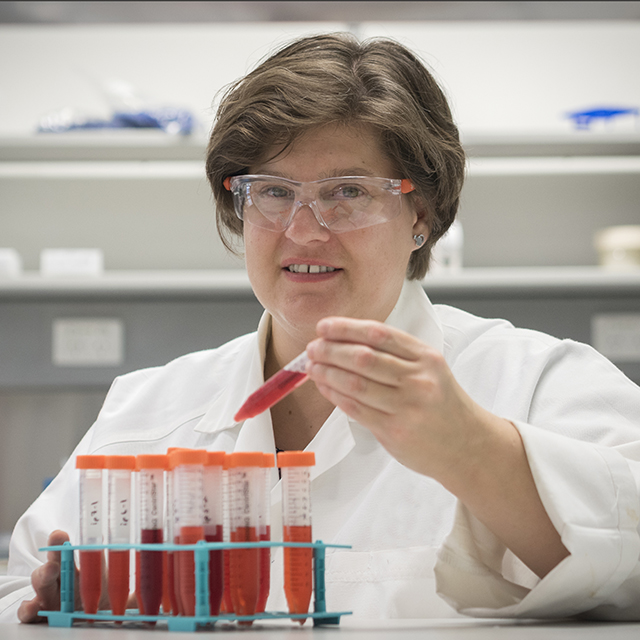
Dr Gabriele Netzel has won a prestigious early-career Advance Queensland Research Fellowship to help protect livestock against Birdsville Indigo, Indigofera linnaei, a native legume found widely in pastures across much of central and northern Australia.
Dr Netzel, from the Queensland Alliance for Agriculture and Food Innovation (QAAFI), a partnership between The University of Queensland and the Queensland Government, said the plant is toxic to horses when eaten, and also potentially toxic to cattle and sheep - and may cause liver damage and weight loss to these animals, as well as miscarriage and stillbirths.
Dr Netzel will work with her industry team to find a bacterial probiotic (inoculum) that prevents livestock absorbing the toxin. Dr Netzel’s industry partner is the Department of Agriculture and Fisheries (DAF) and she will spend a portion of her fellowship working with DAF scientist and QAAFI Adjunct, Ms Diane Ouwerkerk, and rumen ecology scientists to advance this research.
“Indigofera is extremely palatable to cattle and sheep and found widely across Australia, and so the effects on the livestock industry could be quite significant,” Dr Netzel said. “When cattle eat Indigofera, the specific amino acid contained in the plant (called indospicine) accumulates in the animal over time, building up to toxic levels.”
“In early trials we have discovered that certain bacteria can actually protect cattle by fermentation in a cow’s rumen fluids (stomach fluids), enabling the indospicine to break down into smaller molecules that are not toxic.
“There are several parts to my research project—the first is to identify the specific bacteria that is responsible for breaking down the indospicine, and then to create an environment to grow the bacteria in stable conditions.”
The final part of Dr Netzel’s project is to create a bacterial-based treatment, similar to a probiotic, called an inoculum.
“The inoculum could be administered to cattle in the field, thus reducing liver damage, weight loss, miscarriages and stillbirths that may be caused by indospicine,” she said.
“Having an inoculum readily available to Queensland graziers has the potential to improve their cattle productivity through improved weight gain and reduced calf losses.”
Indigofera species are widely found in grazing pastures across tropical areas in Australia, Africa, Asia and the Americas, and the inoculum has the potential for a broader reach.
Dr Netzel said she was thrilled to be awarded the Fellowship. “This project would not have been possible without the Fellowship and it was a honour to receive it,” she said. The project is jointly supported by DAF and the University of Queensland.
Prior to her appointment with QAAFI, Dr Netzel completed her PhD at the University of Giessen in Germany in 2011.
Media: Margaret Puls, QAAFI (+61 7 3346 0553, m.puls@uq.edu.au); Gabriele Netzel (0437 721 028, g.netzel@uq.edu.au)



